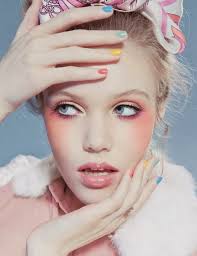 Read any good labels lately? Maybe these look familiar:“Moisturizing.” “Anti-Aging.” “Organic.”
Read any good labels lately? Maybe these look familiar:“Moisturizing.” “Anti-Aging.” “Organic.”
With the bevy of buzzwords trolling the beauty aisle, choice and variety can make it complicated for shoppers to zero in on just the right product. It can also be tough for brands to know which messages and claims matter most to consumers—especially as we’re seeing an increase in labels like “all natural” that are crossing over from the food aisles. So which messages do resonate?
To find out, given the breadth of time and money retailers and manufacturers spend on beauty brands, Nielsen recently conducted an English-language beauty product claim survey of more than 1,000 adults: 37% were Millennials (age 19-34), 29% were from Generation X, 24% were Baby Boomers, 5% were from the Greatest Generation (age 69+) and 5% were from Generation Z (age 18 or younger).
ANIMALS AND PLANTS COME FIRST
When it comes to claims in the beauty aisle, consumers appear most invested in animal welfare, as “not tested on animals” was the most important packaging claim among those surveyed (57%), followed by SPF (sun protection factor) related claims (56%).
When it comes to packaging claims that are worth the biggest share of consumers’ wallets, a January 2015 health and wellness study found that the “all natural” food claim is the highest rated attribute and the one for which consumers are most willing to pay a premium. In the more recent beauty product survey, 53% of respondents say “all natural” is very or moderately important to them. Overall, natural and organic beauty products are giving retailers something to smile about, reporting a 24% compound annual sales growth rate over the past four years—significantly outpacing the 2.7% growth for the total beauty category.
PUTTING OUR MONEY WHERE OUR FACES ARE
The same product survey identified a gap between factors that beauty consumers deem “very or moderately important” and what they’re willing to pay more for. While the “not tested on animals” claim took the No. 1 spot in terms of importance (among 57% of respondents), only 43% of respondents said they’d be willing to pay more for beauty products that aren’t tested on animals. When it’s time to open our wallets, respondents said they’re most willing to pay a premium for “all-natural” beauty products.
When we look at the claims we find important and those we’re willing to pay more for, the top five claims are on both lists, albeit in a different order, with the exception of skin firming. While respondents say they’re willing to pay more for skin-firming products, it’s not among the top five most important label claims. Lack of animal products made the top five beauty claims in order of importance, but it ranked only eighth on the willingness to pay more list.
BEAUTY IS ONLY PACKAGE DEEP
As with all marketing messages, knowing your audience is critical in the beauty aisle. And according to recent Nielsen Affinova research that was conducted as part of Nielsen’s larger Creativity of Beauty study, consumers are looking for familiarity and clarity. Terms like “retinol” and “collagen” were recognizable and preferred over uber-scientific-sounding terminology like “Hexinol technology.” Additionally, beauty consumers responded positively to product packages that include number combinations with product names, such as “3-in-1” moisturizer.
Consumers also report being attracted to packages that clearly include specific benefit-touting phrases like “improves the look of fine lines.” Additionally, anti-aging brands with strong sales numbers and positive customer perceptions feature product packaging that tells consumers how quickly they can expect results, such as “instant eye smoother” and “reduces crow’s feet in two weeks.”
ALL THINGS TO ALL PEOPLE?
According to our recent survey findings, the importance of beauty product claims is significantly more for women than it is for men. That’s not to say, however, that men don’t pay attention to beauty product claims. The key is knowing which product attributes they do pay attention to. For men, “all natural” and “for sensitive skin” claims are among the top five that they find most important. For women, “non-comedogenic” (does not clog pores) and “anti-aging” were beauty attributes unique to their top five most important. The top two beauty claims men are willing to pay more for are “all natural” (26%) and “organic” (21%). The top two beauty claims women are willing to pay more for are “not tested on animals” (42%) and “contains no animal products” (37%).
If there’s an aisle away from food and beverages where the phrase “It’s what’s inside that counts” is most true, it’s in the beauty aisle. Key ingredients can drive consumption, and knowing which ingredients to promote on the packaging is critical. Given the small labels on most beauty products, getting it right and using easily understandable language is salient to increasing sales.

